










| Dicranopalpus ramosus (Simon, 1909) |











|
|
Scientific name: Dicranopalpus ramosus (Simon, 1909) Common name: Other names: Other scientific name: Dicranopalpus caudatus. French name: Order: Opiliones Family: Phalangiidae Size: The size of the body is 4 mm for males, it can reach 6 mm for females. The legs are very long, especially those of the second pair which can be 5 cm long. Biotope: Gardens, outside walls, fences, trunks. Web: No web. Observation period: You can observe adults rather late in the year, from August to November. Geographic area: Originated from Morocco where this species has been described in 1904, it is now present in western Europe and is extending its range northwards and eastwards (Portugal in 1948, southern England in 1957, Spain in 1965, France in 1969, The Netherlands in 1994, Scotland in 2000, Germany in 2004, Denmark in 2010, and more to come …). |
You can often observe Dicranopalpus ramosus sitting flat on the surface of a wall, on a fence or on a trunk. The very long legs are laid on each side of the body, very close to each other. The body is brown with black marks. Females are usually paler than males. They have only two eyes near the front, rather close to each other and located on a small turret. The rather long a pointed forward pedipalps have an elongated apophysis which make them look forked. You can recognize males and females by looking at this apophysis. It is thicker and darker on females than on males. There is a similar species in the Alps Dicranopalpus gasteinensis. You can observe it at high altitude between 2000 and 3000 meters. |
| [To know more about the Dicranopalpus ramosus] [Next picture] [Top] |
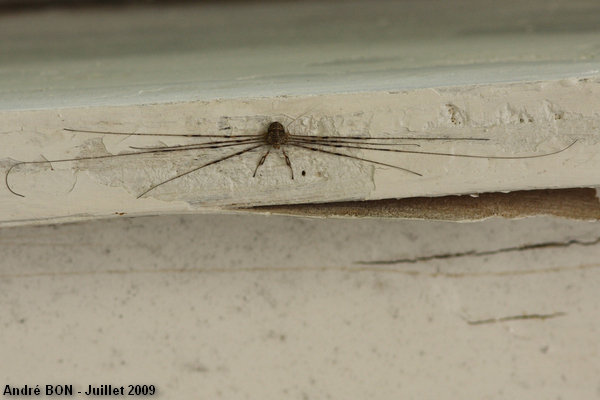
|
I have observed this Dicranopalpus ramosus while I was doing some painting under the roof edges of my house. Here is at least one species which is easy to tell apart. |
| [To know more about the Dicranopalpus ramosus] [Next picture] [Previous picture] [Top] |
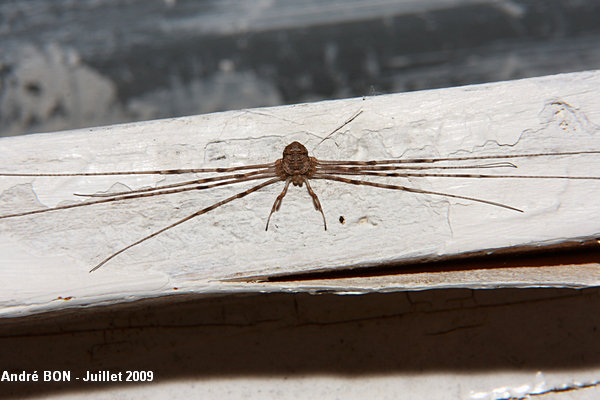
|
Looking at the size of the apophysis on the pedipalps and comparing to what I have seen on forums, I think that this one is a female. The apophysis are relatively thinner on males. |
| [To know more about the Dicranopalpus ramosus] [Next picture] [Previous picture] [Top] |
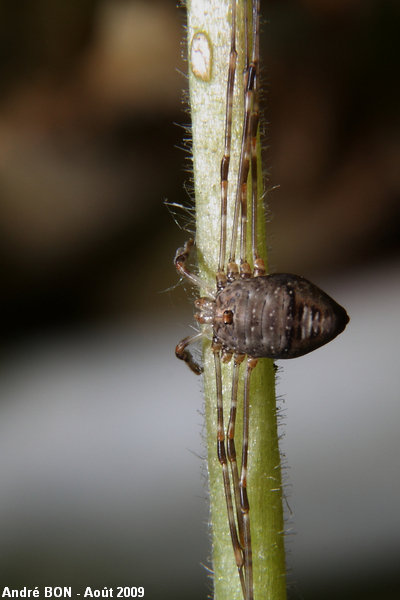
|
I have also observed Dicranopalpus ramosus sitting along a flower stem. This one has lost one of its left legs. |
| [To know more about the Dicranopalpus ramosus] [Next picture] [Previous picture] [Top] |
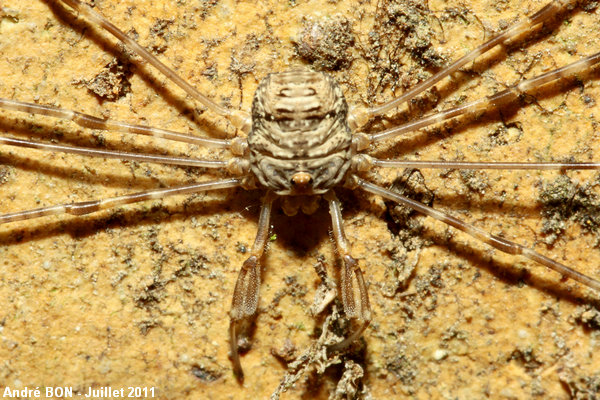
|
After several observations rather high, here is one close to the ground. It is easier to shoot close-up pictures. The rather thick apophysis of the pedipalps indicate one female. |
| [To know more about the Dicranopalpus ramosus] [Next picture] [Previous picture] [Top] |
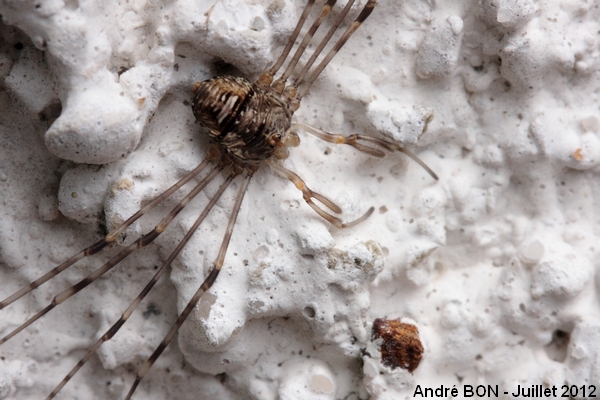
|
The rather thick apophysis of the pedipalps indicate one female again. |
| [To know more about the Dicranopalpus ramosus] [Next picture] [Previous picture] [Top] |
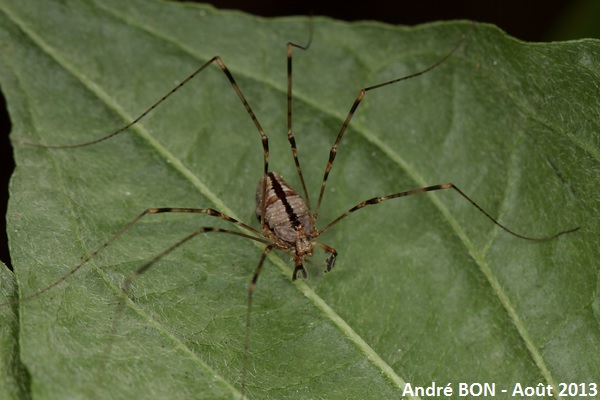
|
Viewing this black longitudinal band I first thought I had a new species for me. So I chased this harvestman, found among low vegetation, to take the maximum of shots that can assist in the identification of the species. I recognized Dicranopalpus ramosus when he sat flat, its body stuck to the support, with the legs extended laterally. The shape of the pedipalps should have put me on track faster. |
| [To know more about the Dicranopalpus ramosus] [Next picture] [Previous picture] [Top] |
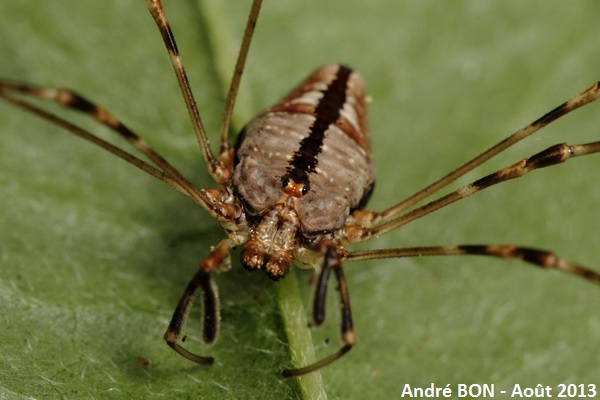
|
Here is a closer view … one female again. |
| [To know more about the Dicranopalpus ramosus] [Next picture] [Previous picture] [Top] |
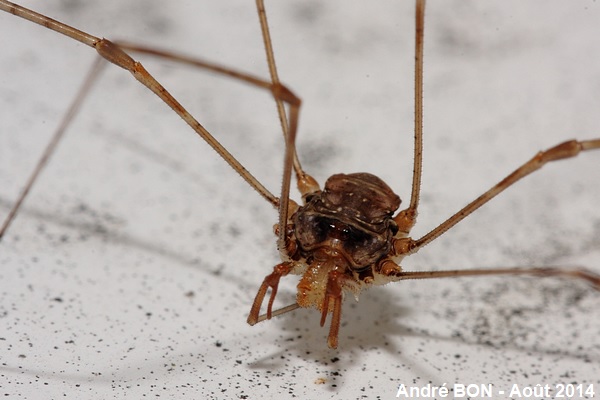
|
And at least this one is a male with the apophyses on the pedipalps being thinner than on females. |
| [To know more about the Dicranopalpus ramosus] [Next picture] [Previous picture] [Top] |
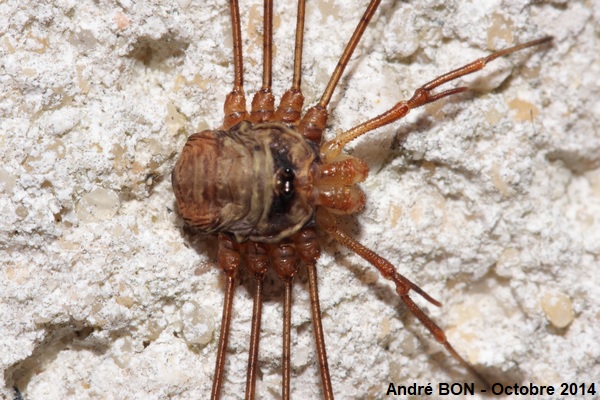
|
Upper side view of another male. |
| [To know more about the Dicranopalpus ramosus] [Next picture] [Previous picture] [Top] |
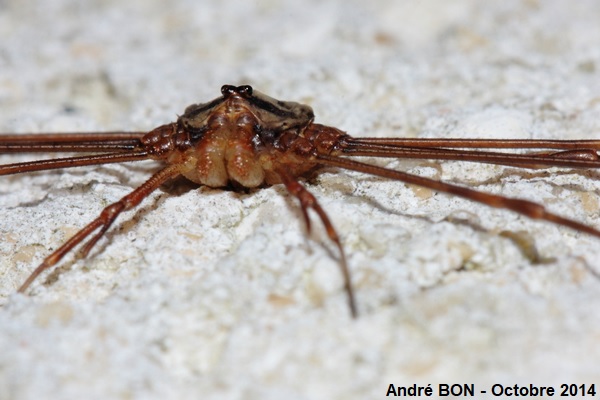
|
Front view of the same specimen. |
| [To know more about the Dicranopalpus ramosus] [Previous picture] [Top] |
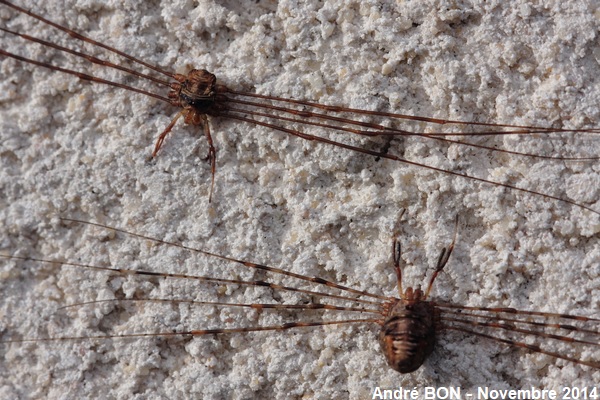
|
Mister and Madam on the same picture. |